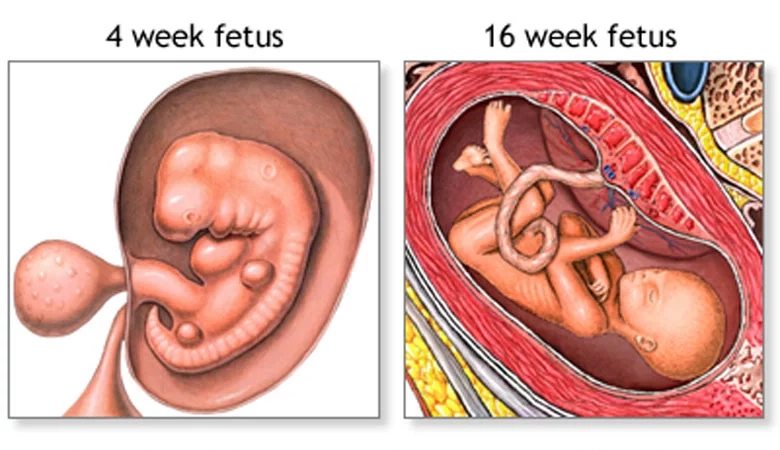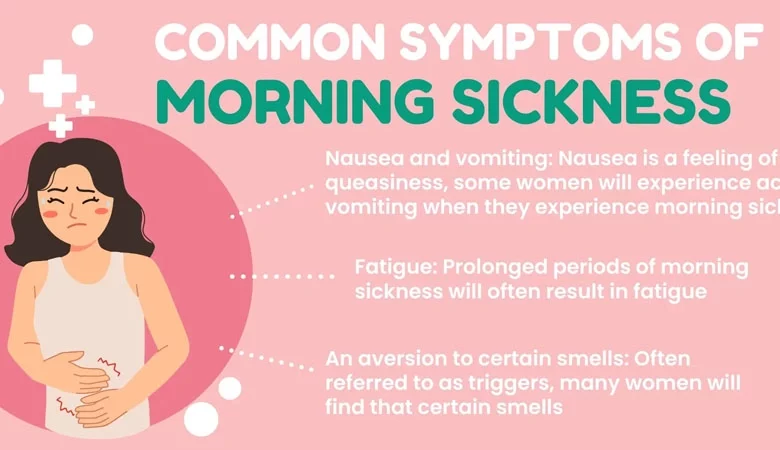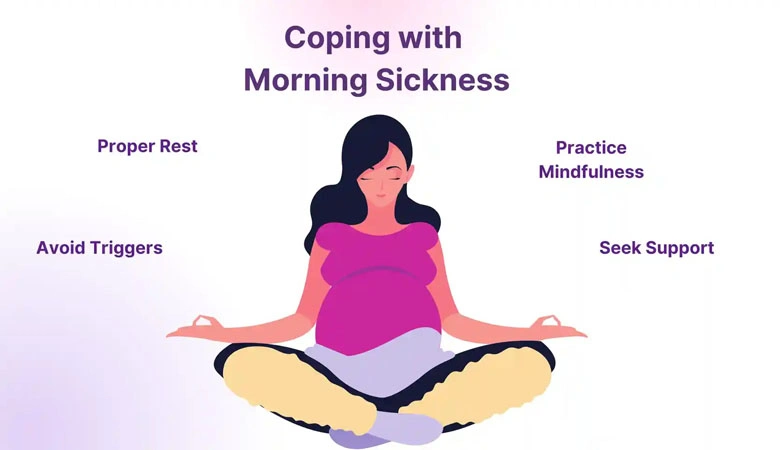How Long Does Morning Sickness Last?
- Pregnancy
-
- UPDATED NOVEMBER 23, 2024

by Tasha Mayberry
410 shares
So, it’s been a few weeks since you found out you are pregnant and you have been over the
moon ever since. You cannot get over the joy of becoming the mother that you are still on
cloud nine. But then, your pregnancy hormones kick in and start doing their job and you start
experiencing one symptom after another, and boom, morning sickness hits you hard!
It is no exaggeration to say that morning sickness is one of the most dreaded pregnancy
symptoms. Even if you have been pregnant before and know what you are up for with this
symptom, you will still be taken aback when it hits you, making you think “ugh, not again!”.
For those of you who are pregnant for the first time and have been hearing a lot about
morning sickness, here is a brief overview of what it is and what you should expect.
What is Morning Sickness?
Also known as NVP, or Nausea and Vomiting of Pregnancy, morning sickness is a symptom
where you will feel sick to your stomach and vomit every now and then, and this takes place
during the first few months of your pregnancy. Don’t let the name “morning” sickness fool
you, because you are most likely to experience it any time of the day.
It is known that morning sickness happens in at least 70 percent of pregnant women, and
typically, the symptom shows in the first trimester, which is the first three months of the
pregnancy. You are more likely to experience the symptom around week 6 into your
pregnancy, and it usually worsens around week 9 (yes, you haven’t seen its full ability yet!).
While morning sickness, in general, doesn’t cause any harm to your baby, if you feel like
your symptom is severe, with too much vomiting and nausea, you should talk to your health
care provider.

How Long Does It Last?
As mentioned before, morning sickness in pregnant women typically starts during their 6 th
week of pregnancy and can last up to 12 weeks, with the symptom getting worse around
weeks 8 to 10. While 12 weeks is believed to be the general duration of the condition to last,
a study published in the American Journal of Obstetrics & Gynecology revealed that around
50% of women got relieved from it by week 14, and 90% got relieved only by week 22.
So, yes, you could expect your morning sickness to last that long, but it may not be the case
for everyone. While most women start feeling better during their second trimester, some
might continue to have morning sickness throughout the duration of their pregnancy.
If your morning sickness doesn’t subside at around 14 weeks of your pregnancy, you could
consult with your gynecologist about the same. While mild morning sickness isn’t something
to be concerned about, if you happen to have persistent vomiting and/or start losing weight, it
is a matter of concern and you need medical attention. Know that these cases are rare but can
be resolved with medical care.

Coping with Morning Sickness
There is no denying that morning sickness sucks, and the fact that nobody is completely sure
what it happens is even worse. But, you can take a few steps to cope with it until you feel
better:

Have Snacks Bedside
Having something to eat before you get out of bed every morning can help settle your
stomach and ward off morning sickness. So, always have a box of salty crackers on your side
table so you can quickly eat a few as soon as you wake up.
Ginger and Lemon are Your Friends
Include lemon and/or ginger in your foods and drinks however you can. You can either sniff
a lemon whenever you feel sick or add a little lemon juice to your drinking water to calm
your stomach. Keep a stash of lemon drops in your handbag whenever you go out to keep
nausea at bay. You could also drink ginger tea, ginger biscuits, crystallized ginger, or add it
in any other form.

Limit Your Sweet Tooth Cravings
The intake of excess sugar can aggravate your nerve endings, thereby causing morning
sickness. So, whenever you feel like eating a sweet, take a piece of dark chocolate instead, so
you can indulge without worries.

Include More Protein in Your Diet
Healthy proteins have the ability to stabilize your blood sugar for a long period of time,
which in turn can help avoid nausea or morning sickness. Anything protein, from a couple of
spoonsful of peanut butter, a handful of your favorite nuts, etc. can do this job right. You
could also have these in the middle of the night or early in the morning when you wake up to
use the bathroom, so it can alleviate nausea when you get out of bed.

Stay Away from Trigger Smells

Now that you are pregnant, even the foods that you once loved might make you feel sick
now. From the coffee smell you used to love waking up to, to the smell of fresh cucumber in
your salad, it could be anything that triggers morning sickness in you. When you know what
it is, stay away from such foods.
When it comes to coping with morning sickness, ultimately, you need to find out what works
for you. From these above-given suggestions to those recommended by your doctor, there
could be one or many that could work the magic for you. Even if nothing works, just hang in
there, goddess, because you will know that it is worth the result!